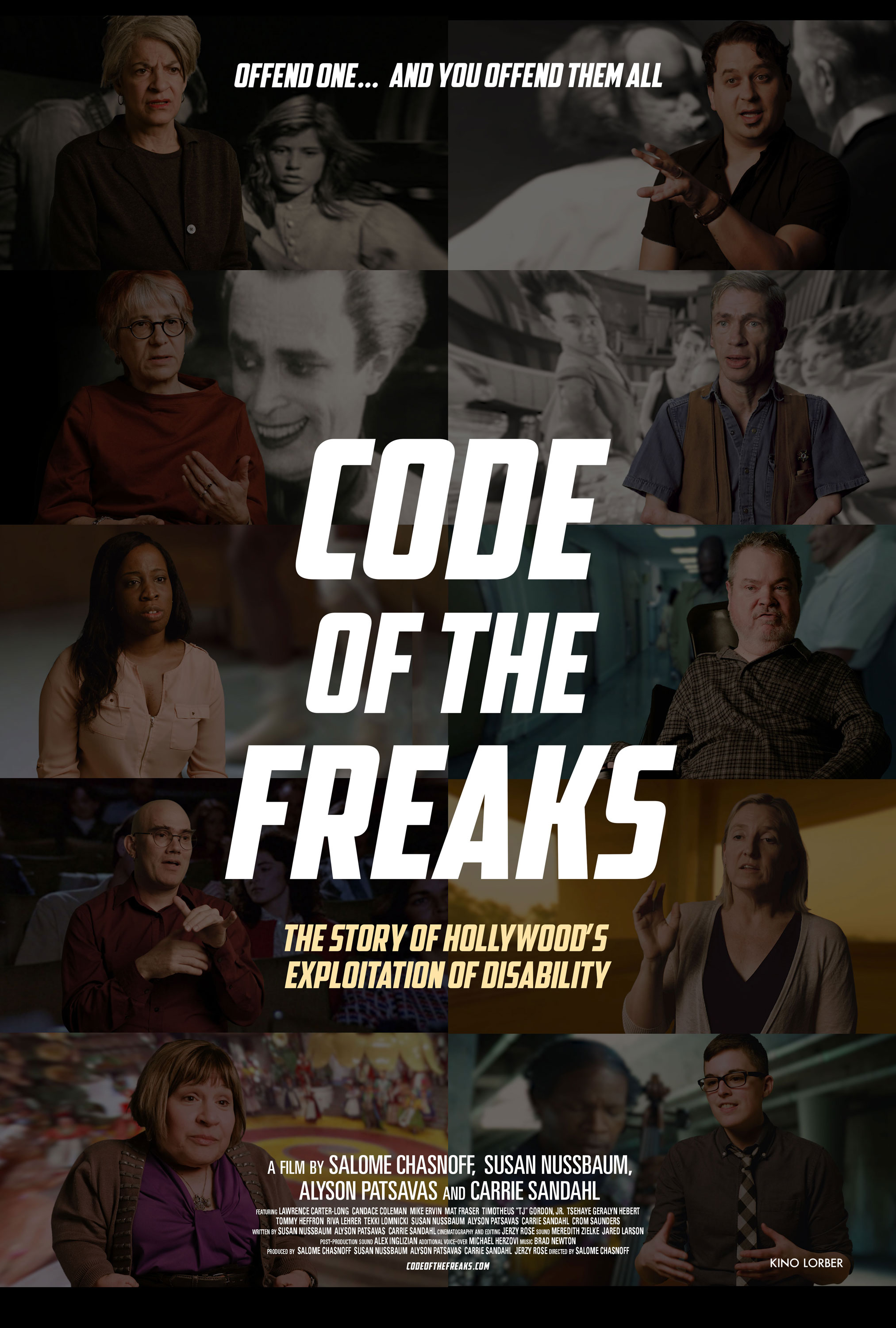
I don’t usually review documentaries here, because it’s a little out of my wheelhouse. Back in April, I watched the critically acclaimed and much beloved Crip Camp, starring none other than national treasure Judy Heumann, and not so much as a peep from this blog, mostly because it was on Netflix and I don’t consider that real movies. But when I heard that the ReelAbilities Film Festival in Toronto was screening a movie about representation of people with disabilities over the last 100 years of film history, I was immediately taken in by the concept.
The trailer is a thing of joy, something that will get under your skin and get you laughing every goddamn time you see Alec Baldwin feeling up someone’s face while playing a blind man. The festival, by the by, is a yearly event in a lot of major cities across Canada and the US, so I whole-heartedly endorse you sign up for the virtual event in your area and/or contribute some time or treasure to their efforts in elevating filmmakers with something to say. I had a chance to watch a short film, “Where No Man Has Gone Before” (someone fact check me on that) that I very much liked, a romance between two young men after a night out from a costume party… and that’s all I’ll say, and a documentary made by a young artist with autism and anxiety who works in the community as an educator. There’s a Serbian superhero film featuring a kid with CP that I’m going to have to hunt down later, Witch Hunter, as well.
In doing some prep for writing this review, it became clear to me that there is a lot of really fun scholarship about film and disability out there, so I want to give you just a few of those: in terms of how representation affects able-bodied perceptions of disability, the emergent “crip studies” of film, and the so-called “crip con“.
Because of technical difficulties (user error on my part), I missed the screening on opening night, but luckily, the good folks at Vancouver’s Still, Life Kickstart film festival were also hosting this movie a week later (thanks especially to Sarah Wang, who helped field some of my questions so that I could participate in the beautiful festival you folks threw!). Anyway, back to Code of the Freaks.
This doc gives cinema the Feminist Frequency treatment for people with disabilities, lots of terrible, problematic cuts from decades of movie history. Their cast of media critics is a diverse array of cheerfully sardonic, impish in their self-deprecating criticism. Their moments of disappointment with the failure of directorial imagination are buoyed with creative hope for a new batch of filmmakers, which couples nicely with the spirit of the festivals.
The doc broke down representation of disability by focusing on a series of tropes in filmic history. The fetishization of the disabled body, repulsion and desire, brought up some neat critiques of movies that I enjoyed a lot like Guillermo del Toro’s Shape of Water. The discussion of how disability is used to “neuter” the threatening masculinity of Black folks in film features Cuba Gooding Jr of all people as a major villain for his dual portrayals of Radio (2003) and Men of Honor (2000). At the time, I remember thinking that this portion of the documentary spent a little too much time outlining the “magical negro” trope which seemed less potent and connected to the other media criticism, but I think that the way in which this element of the documentary made an opening for an intersection between race and disability was probably a lot better than if it had been lacking. It’d be fun to see more of this kind of work from the folks at The Root.
CotF’s discussion of romance and sex for people with disabilities in film talks about some of the problems with altruism of abled-disabled relationships (which Wife mentions surprisingly doesn’t mention Don’t Worry, He Won’t Get Far on Foot, which she and I like because of the way that it resolves some of the objects to romantic portrayals of people with disabilities raised in CotF). The way in which CotF does its treatment of “The Cure” trope is very neat, as the award show acceptance turns into another metaphor for The Cure. Being able to hear a critic say, “That movie messed me up for a long time,” was impactful and personal in a way that doesn’t seem to happen enough in film critique otherwise.
Where the film stumbles a bit is in its mixed ending, which poses the question of which films the panel actually liked. This would’ve been a better question to lead the documentary with than to end, because it comes off as dismissive in a way that clearly isn’t the case–these media critics have just lovingly examined hours and hours of movies for us. The way that Feminist Frequency handles this third act is to highlight video games that are doing things right, as a way of tying together Sarkeesian’s critique of the most financially successful games with the next step for game designers. Sarkeesian is careful to pad her critique, sometimes effusively so, with expressions of love and nostalgia for old games, so that her audience can position itself as fans that can also turn a critical lens on their own habits and tastes. CotF’s call to action rings a little hollow, especially as the opening to a film festival, without sharing some love with up-and-coming directors, but it’s understandable why one would feel the need to end on such a sour note.
CotF is required, cannot-unsee viewing for all movie lovers.
